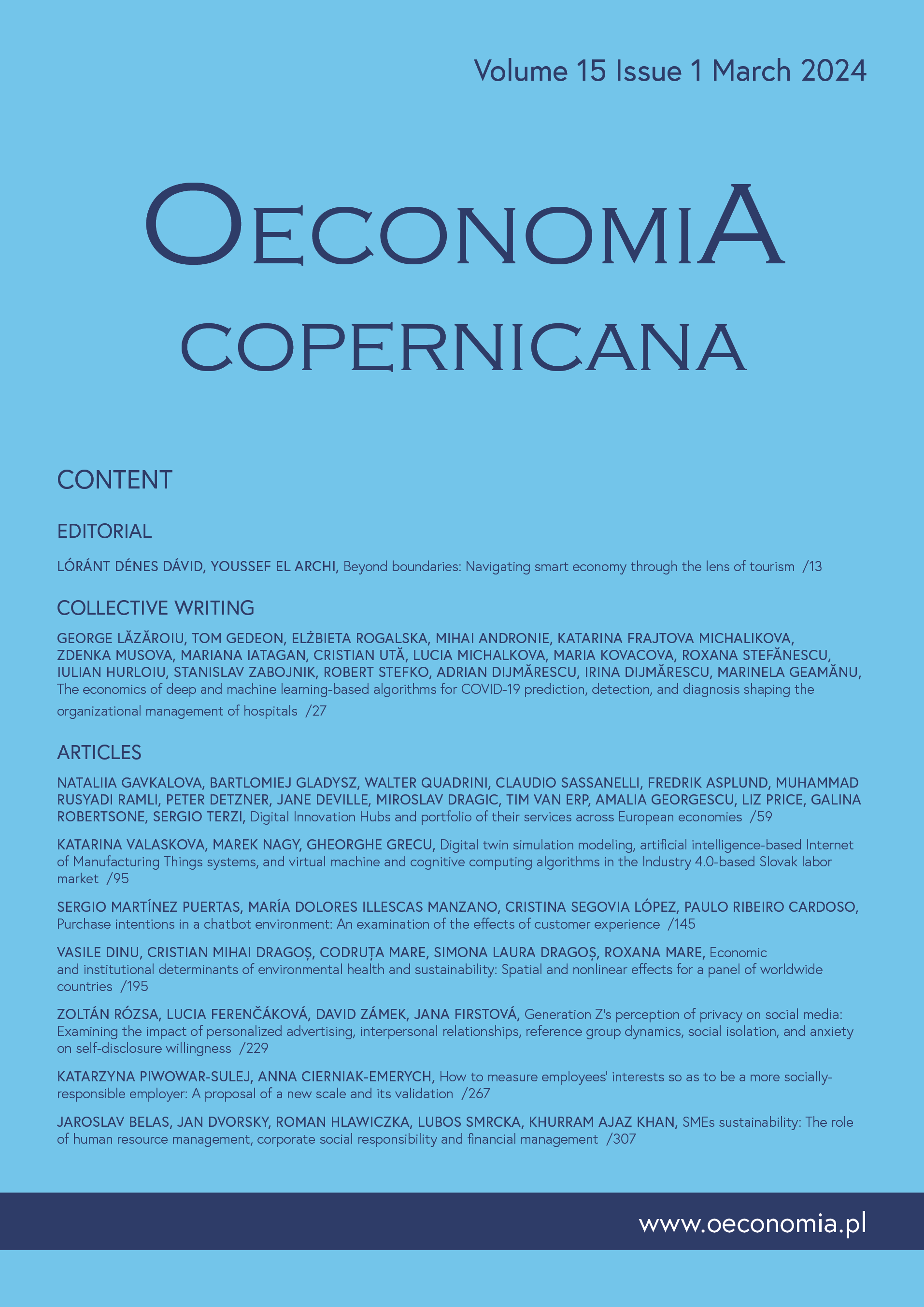Digital twin simulation modeling, artificial intelligence-based Internet of Manufacturing Things systems, and virtual machine and cognitive computing algorithms in the Industry 4.0-based Slovak labor market
Digital twin simulation modeling, artificial intelligence-based Internet of Manufacturing Things systems, and virtual machine and cognitive computing algorithms in the Industry 4.0-based Slovak labor market
Author(s): Katarina Valaskova, Marek Nagy, Gheorghe GrecuSubject(s): National Economy, Business Economy / Management, Human Resources in Economy, ICT Information and Communications Technologies, Socio-Economic Research
Published by: Instytut Badań Gospodarczych
Keywords: artificial intelligence; Industry 4.0; labor market; digitization; industry; production enterprises;
Summary/Abstract: Research background: On the basis of an analysis of the current situation and expectations in the field of implementation of the elements of the Industry 4.0 concept, the purpose of this paper is to identify the effects on the labor market in large manufacturing enterprises in the Slovak Republic.Purpose of the article: The presented work has a theoretical-empirical nature and consists of a theoretical section and a practical section, which includes statistical indicator analysis and quantitative research. In the theoretical section, the paper discusses the issue of Industry 4.0 in general, with a focus on its impact on the labor market, thus laying the groundwork for future research on the subject.Methods: The output of this work is an analysis of selected indicators of the manufacturing industry sector in the Slovak Republic, based on the most recent employment data analysis in the first stage and quantitative research survey in the second stage, with the respondents being manufacturing industry companies operating in the Slovak Republic, and whose prima- ry objective is to determine the current status of the implementation of the elements and technologies of Industry 4.0 in production companies in the Slovak Republic, as well as the factors influencing this situation, such as digital twin simulation modeling, artificial intelli- gence-based Internet of Manufacturing Things systems, and virtual machine and cognitive computing algorithms.Findings & value added: The research findings indicate that the degree of digitization adopt- ed by businesses in the Slovak Republic is comparatively less robust and more sluggish to adapt. This is primarily attributable to the underdeveloped educational system, population reluctance, self-actualization, and inadequate state support. Recommendations for the Slovak market aim to increase the digital proficiency of businesses and of the general populace through various means, such as reforming legislation, enhancing state support for entrepre- neurs, and modifying the education system, constituting the added value of the work.
Journal: Oeconomia Copernicana
- Issue Year: 15/2024
- Issue No: 1
- Page Range: 95-143
- Page Count: 49
- Language: English

